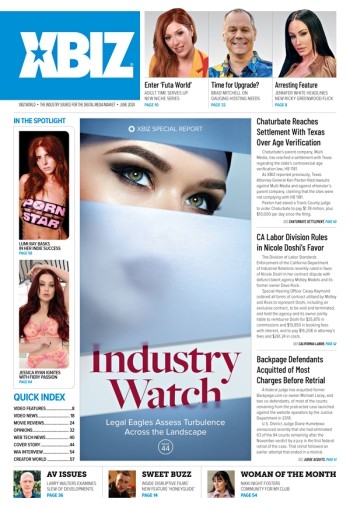Last month, we gave you the master keys to the new Mastercard rules, sharing best practices for keeping your company compliant. Mastercard has since given us further clarification on a few points, which we want to share.
First, the merchant is now responsible for verifying the uploader, while the uploader is required to have verified consent from the other participants, including their ages and identities. Also, livestream sites must have tools and/or a team in place that moderates and reviews livestream content. Lastly, and very importantly, we received clarification on verifying content posted before the October 15 start date. The new rules apply only to content uploaded on or after October 15. Legacy content does not need additional verification as previously thought.
The new rules apply only to content uploaded on or after October 15. Legacy content does not need additional verification as previously thought.
Many of us have been preparing for these new Mastercard rules for months, but it hit me that we had been working to satisfy these new regulations with blinders on. We failed to realize that one important voice hadn’t been heard: the talent. Those who create content now find their livelihoods on the line more than ever.
To that end, the Free Speech Coalition has been listening and gathering collective concerns, especially because some creators felt paralyzed when they thought they had to revalidate old content. All of this was exacerbated after OnlyFans initially decided to prohibit sexually explicit content, only to reverse its decision after swift and widespread pushback. As an FSC board member, I felt it was important to amplify creators' voices, so for this month’s article, we dive into the top eight key issues and discuss ways we can weather this content creator controversy.
THE CREATOR CONUNDRUM: WE’VE GOT ISSUES
Mastercard’s main goal with its new regulations is to remove the risky element of users being able to upload content anonymously on the internet. It also wants to remove any content that is not authorized by the individuals who appear in it. As in any industry, there are a few in the adult space who cause trouble, but for you many legitimate players, we will try to address your concerns.
• Then vs. Now Validation
Validating IDs is a big part of the new Mastercard regulations. That validation is also what’s causing a lot of confusion, especially when it comes to validating IDs for older 2257 content repurposed on a user-upload site. With the new clarification, content uploaded before October 15, 2021, does not need revalidation. For new user-uploaded content, a valid ID would need to be collected from the user, while the user must confirm that any other individuals in the content are legally of age, that they have a valid ID and release, that the content has been reviewed and that it does not violate the card brand standards.
• Repeat Validation
To top it off, creators who were impacted when OnlyFans temporarily shut them down in August were tasked with moving hundreds, even thousands of pieces of content to a new platform, having to validate it all over again. Since there is no universal standard, this means content that was legal may now be disallowed. If you’re caught up in this, don’t panic. Take a few deep breaths and begin to prepare. I strongly recommend looking into diversifying and having more than one platform on which to monetize your content. This will eliminate the need to migrate everything multiple times should something go wrong with one platform. Diversification became a practice in the billing space over 15 years ago. Merchants split their traffic to ensure they always have a solution in place should something go wrong with one of their payment solutions. While it wasn’t fun for merchants to do at the time, now it is standard practice to use multiple providers.
• AI Recognition Issues
The FSC has received numerous reports of issues from content creators when it comes to compliance. First, facial recognition isn’t always working. For example, creators say their faces are often not recognized when they engage in cosplay or use unusual makeup. They also report that artificial intelligence is requesting the ID of any face in the image, including background photos or stuffed animals that appear in the shot.
• Securing Data
Adult creators have also expressed concerns about hacks or the insecure storage of data. This was a major issue with PornWikileaks a decade ago and many are concerned this will happen again. Things like legal names, addresses and other information floating around unsecured will leave content creators vulnerable to discrimination or stalkers. The good news is, there are sophisticated solution providers out there such as VerifyMyContent and Ondato which will store the content creator information securely on their platforms.
• Keeping Content Timely, While Valid
Getting things live instantly is important when it comes to being timely. Influencers and creators are concerned these verification regulations will slow everything down since it all needs to be reviewed before publication. This means they are being held to a different standard than non-adult creators or sites, and this impacts their ability to act quickly and capture trends. Again, Mastercard is requiring livestream sites to have moderating tools in place and/or teams to review all livestream content. There are sophisticated solutions available to help approve content in real time. Many non-adult sites like Patreon and Tango.me utilize the same tools that are now becoming necessary in the adult industry.
• Limited Content Moderation Options
Content creators have also expressed concerns that bigger platforms like OnlyFans are the only ones that have the capacity to do real-time verification for live broadcast or quickly moderate content, while new platforms or smaller sites do not, which limits competition. While this is true, smaller platforms can have a strong team in place and be just as effective — or even more effective via innovation — when it comes to verification and moderation. As their volume grows, they’ll also have funding to integrate technology solutions to help them scale up.
• Vague Rules, With Strict Interpretations
Mastercard has so far offered general rules and standards that look reasonable, but banks and platforms are requiring additional layers that impact creators. This is where a lot of the drama comes from. Unfortunately, this is how it works with card brands. They roll out guidelines, but leave it up to their members or banks to interpret and implement them. While it seems a bit fuzzy now, in three to six months there will be greater clarity. As things settle down, we will have implemented the controls and we will see how it is all enforced.
• Banned From Social Media
With the National Center on Sexual Exploitation, Exodus Cry and other groups pressuring platforms like Twitter and Reddit, creators are concerned that these sites will soon ban adult content altogether like Facebook and Instagram, rather than deal with the hassle of validation.
FUTURE FREEDOM
So, where do we go from here and how do we address these valid concerns? I think our best hope is with technology providers or in-house solutions that help speed up age verification, store data more securely and increase the efficiency of moderating content.
One company that I have been introduced to is VerifyMyContent, which has created a solution that helps a merchant meet all of the requirements of the new standards. The site stores information securely and keeps it private. Once a model is validated on the site, they can use the same validation for other solution providers that also use VerifyMyContent.
Alternatively, there are providers out there like Ondato, which helps validate age verification; TheHive, which helps moderate content; and Microsoft Computer Vision, an AI service that analyzes content in images and videos.
I’m proud to have my ear to this special community and am glad that the FSC has been gathering these important viewpoints. Just this summer, the FSC participated in a meeting with Mastercard and even though it didn’t resolve anything, the attempt to start a dialogue was admirable. I spoke with Mastercard directly and I’m told they are building an FAQ to further clarify the new rules. If you have more questions or concerns, please share them with me. On behalf of the FSC and content creators around the world, I vow to personally take these concerns directly to Mastercard for the benefit of all.
Cathy Beardsley is president and CEO of Segpay, a global leader in merchant services offering a wide range of custom financial solutions including payment facilitator, direct merchant accounts and secure gateway services. Under her direction, Segpay has become one of four companies approved by Visa to operate as a high-risk internet payment services provider. Segpay offers secure turnkey solutions to accept online payments, with a guarantee that funds are always safe and protected with its proprietary Fraud Mitigation System and customer service and support. For any questions or help, contact sales@segpay.com or compliance@segpay.com.






